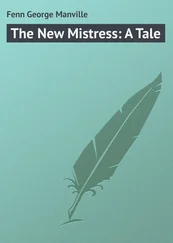George Fenn - The Haute Noblesse - A Novel
Здесь есть возможность читать онлайн «George Fenn - The Haute Noblesse - A Novel» — ознакомительный отрывок электронной книги совершенно бесплатно, а после прочтения отрывка купить полную версию. В некоторых случаях можно слушать аудио, скачать через торрент в формате fb2 и присутствует краткое содержание. Жанр: foreign_prose, на английском языке. Описание произведения, (предисловие) а так же отзывы посетителей доступны на портале библиотеки ЛибКат.
- Название:The Haute Noblesse: A Novel
- Автор:
- Жанр:
- Год:неизвестен
- ISBN:нет данных
- Рейтинг книги:5 / 5. Голосов: 1
-
Избранное:Добавить в избранное
- Отзывы:
-
Ваша оценка:
- 100
- 1
- 2
- 3
- 4
- 5
The Haute Noblesse: A Novel: краткое содержание, описание и аннотация
Предлагаем к чтению аннотацию, описание, краткое содержание или предисловие (зависит от того, что написал сам автор книги «The Haute Noblesse: A Novel»). Если вы не нашли необходимую информацию о книге — напишите в комментариях, мы постараемся отыскать её.
The Haute Noblesse: A Novel — читать онлайн ознакомительный отрывок
Ниже представлен текст книги, разбитый по страницам. Система сохранения места последней прочитанной страницы, позволяет с удобством читать онлайн бесплатно книгу «The Haute Noblesse: A Novel», без необходимости каждый раз заново искать на чём Вы остановились. Поставьте закладку, и сможете в любой момент перейти на страницу, на которой закончили чтение.
Интервал:
Закладка:
“My father desired to be kindly remembered, and I was to say, ‘Very satisfactory so far.’”
“Very satisfactory so far?” said Vine, dreamily.
“He said you would know what it meant.”
“To be sure – to be sure. Louie, my dear, I’m afraid your aunt is right. My brain is getting to be like that of a jelly fish.”
He nodded laughingly and left the room.
“Did you meet Harry as you came?” said Louise, as soon as they were alone.
“Yes; but he kept on one side of the street, and I was on the other.”
“Didn’t he cross over to speak?”
“No; he couldn’t see the Dutch fraülein – the Dutch doll.”
“Oh, that’s cruel, Maddy. I did not think my aunt’s words could sting you.”
“Well, sometimes I don’t think they do, but at others they seem to rankle. But, look, isn’t that Mr Pradelle coming?”
For answer Louise caught her friend’s hand to hurry her out of the room before Pradelle entered.
Chapter Eleven
Aunt Marguerite studies a Comedy
That morning after breakfast Aunt Marguerite sat by her open window in her old-fashioned French peignoir .
She saw Pradelle go out, and she smiled and beamed as he turned to look up at her window, and raised his hat before proceeding down into the back lanes of the port, to inveigle an urchin into the task of obtaining for him a pot of ragworms for bait.
Soon after she saw her nephew go out, but he did not raise his head. On the contrary, he bent it down, and heaved up his shoulders like a wet sailor, as he went on to his office.
“ Mon pauvre enfant !” she murmured, as she half-closed her eyes, and kissed the tips of the fingers. “Just wait a while, Henri, mon enfant , and all shall be well.”
There was a lapse of time devoted to thought, and then Aunt Marguerite’s eyes glistened with malice as she saw Madelaine approach.
“Pah!” she ejaculated softly. “This might be Amsterdam or the Boompjes. Wretched Dutch wench! How can George tolerate her presence here?”
Then Pradelle came back, but he did not look up this time, merely went to the door and entered, his eyes looking searchingly about as if in search of Louise.
Lastly, a couple of particularly unseamanlike men, dressed in shiny tarpaulin hats and pea-jackets, with earrings and very smooth pomatumy hair, came into sight. Each man carried a pack and a big stick, and as they drew near their eyes wandered over window and door in a particularly searching way.
They did not come to the front, but in a slouching, furtive way went past the front of the house, and round to the back, where the next minute there was a new tapping made by the knob of a stick on a door, and a moment later a buzzing murmur of voices arose.
Aunt Marguerite had nothing whatever to do, and the murmur interested her to the extent of making her rise, go across her room, and through a door at the back into her bed-chamber, where an open lattice window had a chair beneath, and the said window being just over the back entrance from whence the murmur came. Aunt Marguerite had nothing to do but go and sit down there unseen, and hear every word that was said.
“Yes,” said the familiar voice of brown-faced, black-haired Liza; “they’re beautiful, but I haven’t got the money.”
“That there red ribbon’d just soot you, my lass,” said a deep voice, so fuzzy that it must have come from under a woollen jacket.
“Just look at that there hankychy, too,” said another deep voice. “Did you ever see a better match?”
“Never,” said the other deep voice emphatically.
“Yes, they’re very lovely, but I ain’t got the money. I let mother have all I had this week.”
“Never mind the gashly money, my lass,” said the first deep-voiced man huskily, “ain’tcher got nothing you can sell?”
Then arose a good deal of murmuring whisper, and Aunt Marguerite’s lips became like a pale pink line drawn across the lower part of her face, and both her eyes were closely shut.
“Well, you wait,” was the concluding sentence of the whispered trio, and then the door was heard to shut.
The click of a latch rose to where Aunt Marguerite sat, and then there was a trio once again – a whispered trio – ending with a little rustling, and the sound of heavy steps.
Then the door closed, and Liza, daughter of Poll Perrow, the fish-woman, who carried a heavy maund by the help of a strap across her forehead, hurried up to her bedroom, and threw herself upon her knees as she spread two or three yards of brilliant red ribbon on the bed, and tastefully placed beside the ribbon an orange silk kerchief, whose united colours made her dark eyes sparkle with delight.
The quick ringing of a bell put an end to the colour-worship, and Liza, with a hasty ejaculation, opened her box, thrust in her new treasures, dropped the lid, and locked it again before hurrying down to the dining-room, where she found her young mistress, her master, and Madelaine Van Heldre.
“There was some change on the chimney-piece, Liza,” said Louise. “Did you see it?”
“No, miss.”
“It is very strange. You are quite sure you did not take it, papa?”
“Quite, my dear.”
“That will do, Liza.”
The girl went out, looking scared.
“It is very strange,” said Vine.
“Yes, dear; and it is a great trouble to me. This is the third time money has been missing lately. I don’t like to suspect people, but one seems to be forced.”
“But surely, Louie, dear, that poor girl would not take it.”
“I have always tried to hope not, Maddy,” said Louise sadly.
“You had better make a change.”
“Send her away, father? How can I do that? How can I recommend her for another situation?”
“Ah! it’s a puzzle – it’s a puzzle,” said Vine irritably. “One of the great difficulties of domestic service. I shall soon begin to think that your uncle Luke is right after all. He has no troubles, eh, Louise?”
She looked up in his face with a peculiar smile, but made no reply. Her father, however, seemed to read her look, and continued:
“Ah, well, I daresay you are right, my dear; we can’t get away from trouble; and if we don’t have one kind we have another. Get more than our share, though, in this house.”
Louise smiled in his face, and the comical aspect of chagrin displayed resulted in a general laugh.
“Is one of the sea-anemones dead?”
“Yes, confound it! and it has poisoned the water, so that I’m afraid the rest will go.”
“I think we can get over that trouble,” said Louise, laughing. “It will be an excuse for a pleasant ramble with you.”
“Yes,” said Vine dryly, “but we shall not get over the trouble of the thief quite so well. I’m afraid these Perrows are a dishonest family. I’ll speak to the girl.”
“No, father, leave it to me.”
“Very well, my child; but I think you ought to speak.” The old man left the room, the bell was rung, and Liza summoned, when a scene of tears and protestations arose, resulting in a passionate declaration that Liza would tell her mother, that she would not stop in a house were she was going to be suspected, and that she had never taken anybody’s money but her own.
“This is the third time that I have missed money, Liza, or I would not have spoken. If you took it, confess like a good girl, and we’ll forgive you if you promise never to take anything of the kind again.”
“I can’t confess, miss, and won’t confess,” sobbed the girl. “Mother shall come and speak to you. I wouldn’t do such a thing.”
“Where did you get the money with which you bought the red ribbon and orange kerchief this morning, Liza?” said a voice at the door.
Читать дальшеИнтервал:
Закладка:
Похожие книги на «The Haute Noblesse: A Novel»
Представляем Вашему вниманию похожие книги на «The Haute Noblesse: A Novel» списком для выбора. Мы отобрали схожую по названию и смыслу литературу в надежде предоставить читателям больше вариантов отыскать новые, интересные, ещё непрочитанные произведения.
Обсуждение, отзывы о книге «The Haute Noblesse: A Novel» и просто собственные мнения читателей. Оставьте ваши комментарии, напишите, что Вы думаете о произведении, его смысле или главных героях. Укажите что конкретно понравилось, а что нет, и почему Вы так считаете.












